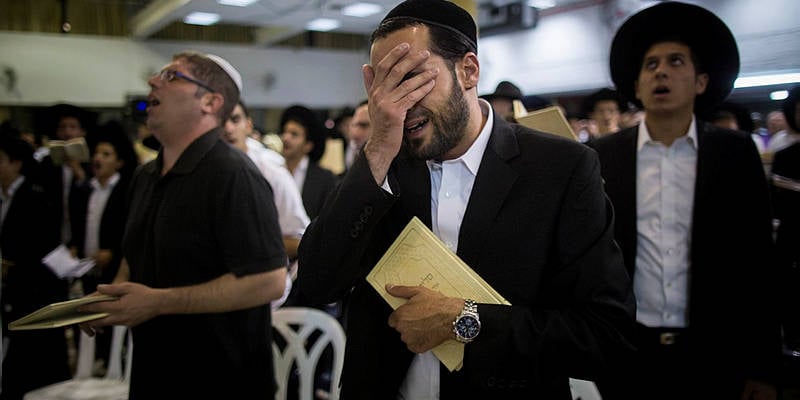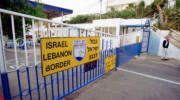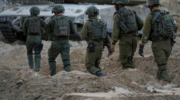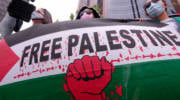One of the highlights of the Rosh Hashana morning service is the recitation of the “U’netaneh Tokef” prayer.
By Rabbi Ari Enkin, Rabbinic Director, United with Israel
U’netaneh Tokef is possibly the most emotional and haunting prayer of the day on Rosh Hashana. The tune is moving. The Ark is open. The silence can be felt. Here it is:
“On Rosh Hashanah it will be written, and on the fast of Yom Kippur it will be sealed – how many will pass from the world, and how many will be created, who will live, and who will die…who by water, and who by fire, who by the sword, and who by wild beasts, who by hunger, and who by thirst, who by earthquake, and who by plague, who by strangulation, and who by stoning, who will stay in his place, and who will be made to wander; who will live peacefully, and who will endure tribulations; who will have tranquility, and who will suffer, who will become poor, and who will become rich, who will be lowered, and who will rise.”
As one can see, it summarizes the Rosh Hashana to Yom Kippur season. It reminds us that we are at God’s mercy.
But perhaps even more moving than the prayer itself is the author of the prayer, and why he wrote it.
The author was 11th-century Rabbi Amnon of Mainz, Germany. Rabbi Amnon was a highly respected rabbinic leader who was also an advisor to the local bishop. Church officials would frequently urge the Bishop to pressure Rabbi Amnon to convert to Christianity. One day the bishop decided to follow through with the request and he summoned Rabbi Amnon and asked him if he would convert.
Rabbi Amnon explained that he did not want to convert, and that there was no reason for him to become a Christian. But the bishop persisted and eventually Rabbi Amnon innocently “slipped” and asked for “three days to think about it.”
Rabbi Amnon could not believe that he had uttered those words. He didn’t know how it was possible. He would never consider abandoning his faith.
Three days later, the bishop summoned Rabbi Amnon and asked him what he decided.
‘Repentance, Prayer and Charity’
Rabbi Amnon said, “I decided that you should cut off my tongue, which spoke of the possibility of my rejecting my faith!”
The bishop got angry. Instead of merely cutting off Rabbi Amnon’s tongue, he decreed that instead his arms and legs should be amputated.
On Rosh Hashanah, a short time later, Rabbi Amnon asked to be brought by stretcher to the synagogue. At one point in the service, he was asked to be brought in front of the Holy Ark, and it was the words of the U’netaneh Tokef prayer that came out of his mouth. As soon as he finished, he died.
According to tradition, Rabbi Amnon later appeared in a dream to another leading German rabbi, Rabbi Kalonymus. He told Rabbi Kalonymus that the U’netaneh Tokef prayer was accepted in Heaven, and that it is a very powerful prayer. Since then, U’netaneh Tokef has become an integral part of the Rosh Hashana prayer service.
As frightening as the prayer and its history is, the words that follow are encouraging: “But repentance, prayer and charity eliminate the harsh decree.”
No matter how bad we’ve been throughout the last year, if we return to God with repentance and good deeds, He is only more than happy to accept us back. He wants to bless with everything good. Let’s created the relationship so that He can.

Do You Love Israel? Make a Donation - Show Your Support!
Donate to vital charities that help protect Israeli citizens and inspire millions around the world to support Israel too!
Now more than ever, Israel needs your help to fight and win the war -- including on the battlefield of public opinion.
Antisemitism, anti-Israel bias and boycotts are out of control. Israel's enemies are inciting terror and violence against innocent Israelis and Jews around the world. Help us fight back!























